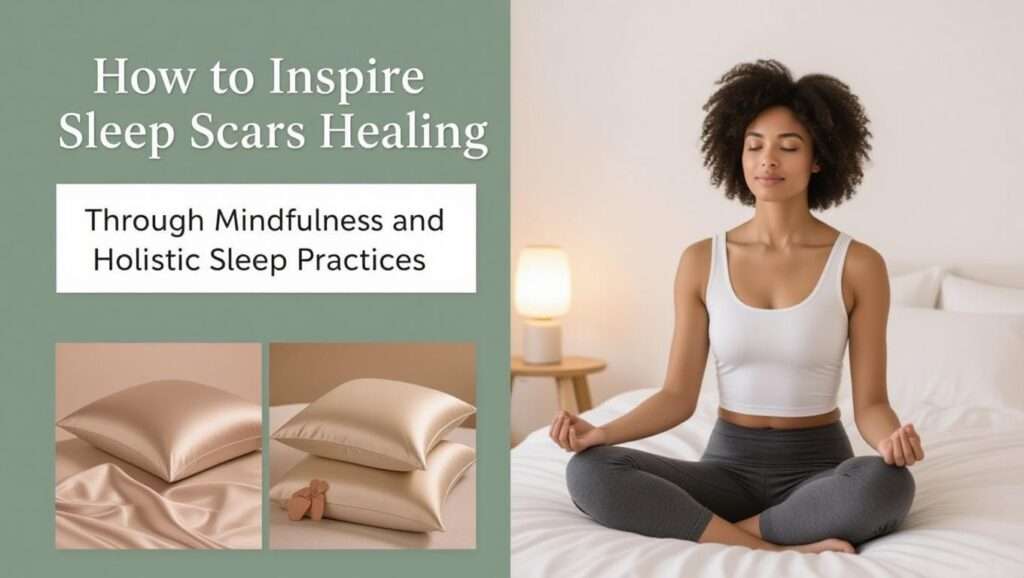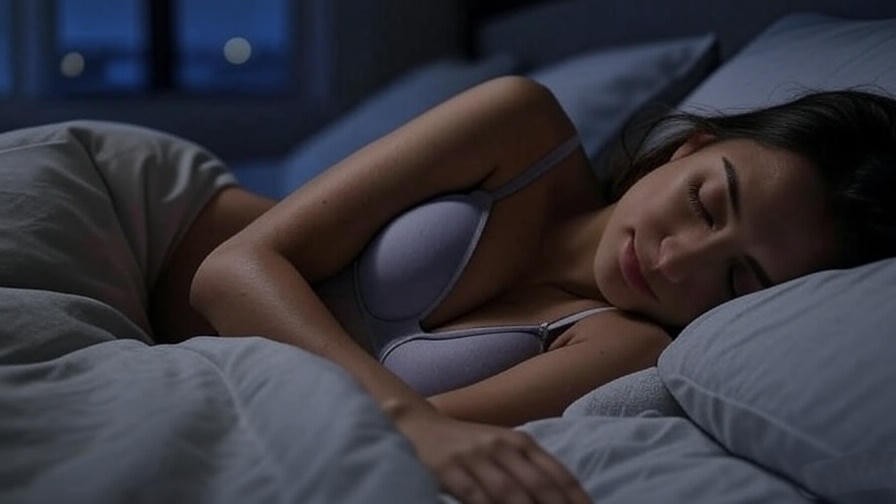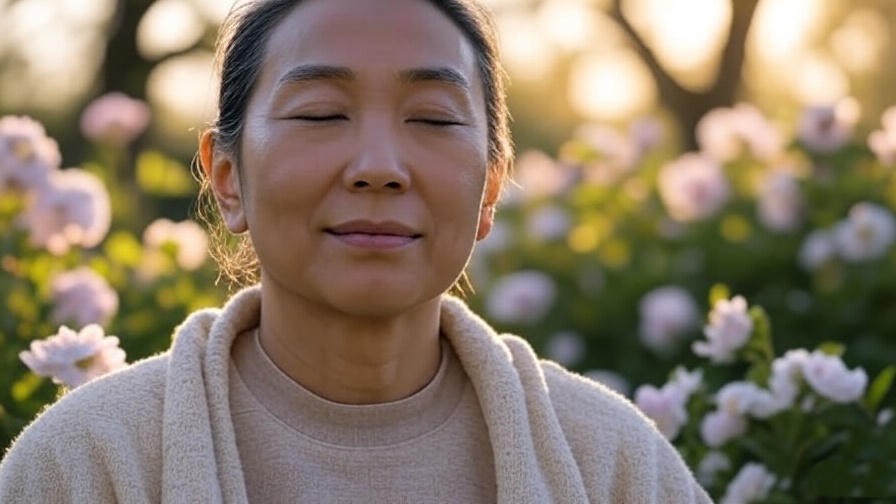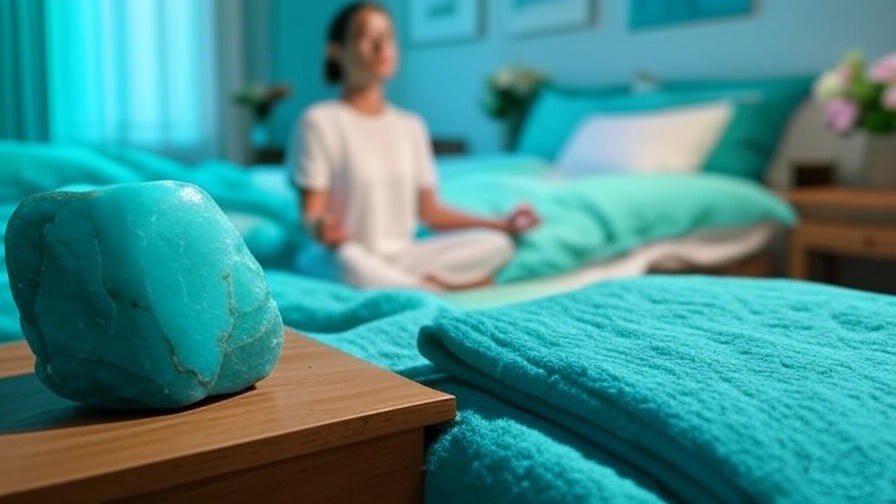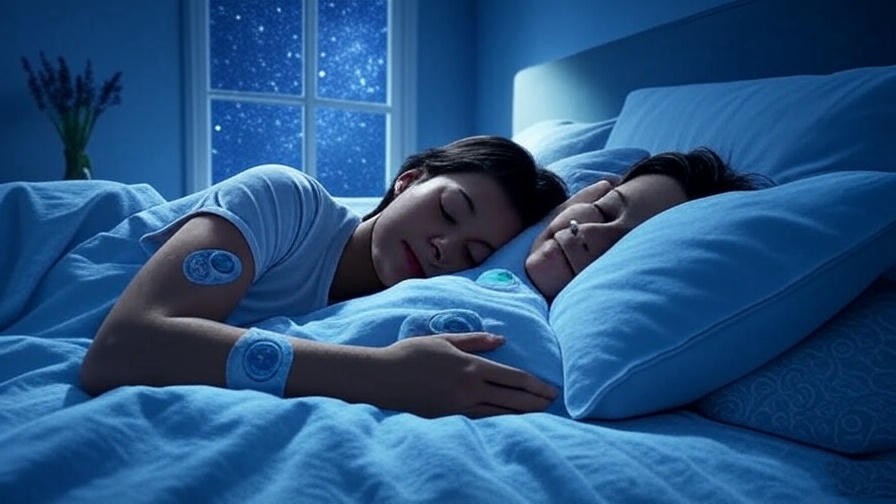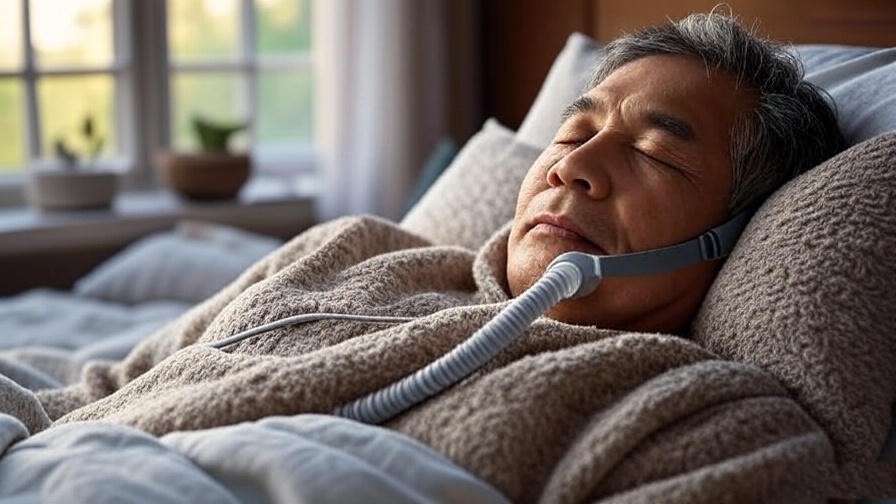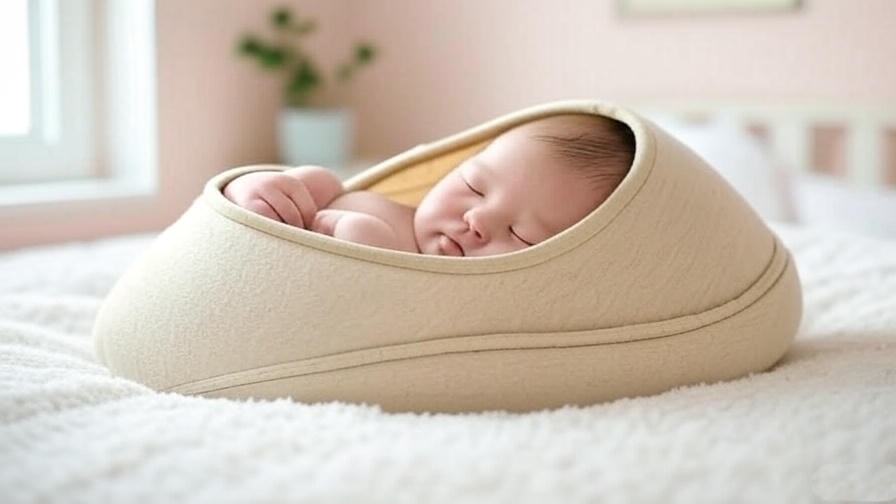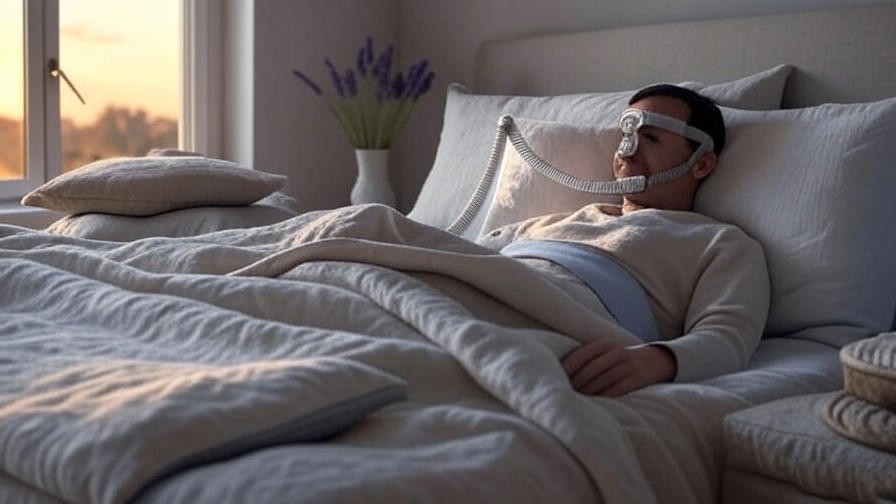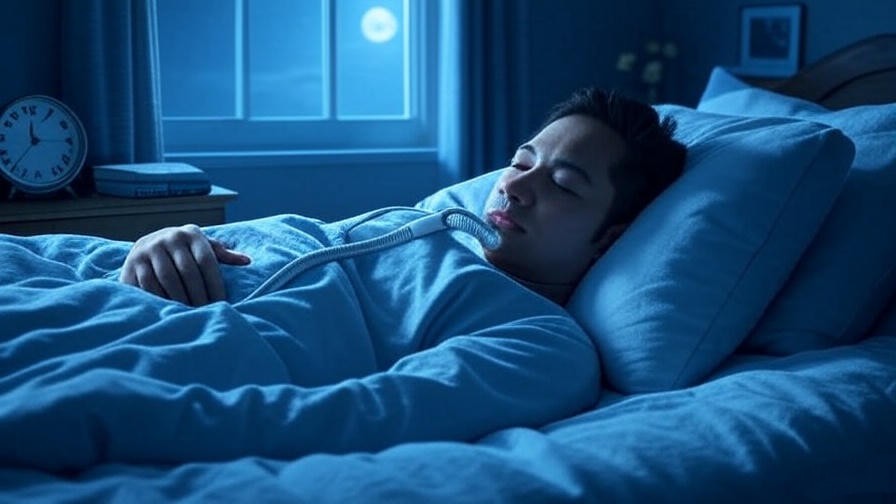Imagine waking up, glancing in the mirror, and noticing those frustrating sleep scars—those temporary creases, redness, or marks etched on your face from a night of restless sleep. For many, these sleep scars are more than a minor annoyance; they chip away at confidence and disrupt morning routines. If you’re seeking ways to inspire sleep scars healing naturally, you’re not alone. These marks, caused by pressure on the skin during sleep, can be minimized through mindfulness and holistic sleep practices. In this comprehensive guide, we’ll explore science-backed strategies to reduce sleep scars, enhance sleep quality, and promote radiant skin, all while fostering holistic well-being. By combining dermatological insights, sleep science, and mindfulness expertise, this article offers practical solutions to help you wake up refreshed and scar-free.
Understanding Sleep Scars: Causes and Impact
What Are Sleep Scars?
Sleep scars, often called sleep lines or pillow marks, are temporary indentations, creases, or redness on the skin caused by prolonged pressure during sleep. Unlike permanent scars or acne marks, these fade within hours but can linger longer for those with sensitive skin. They commonly appear on the face, neck, or shoulders—areas pressed against pillows or bedding. According to dermatologist Dr. Jessica Wu, sleep scars result from mechanical stress on the skin, which compresses tissues and restricts blood flow temporarily. Understanding their transient nature is key to addressing them effectively.
Why Do Sleep Scars Happen?
Several factors contribute to sleep scars. Prolonged pressure from sleeping in one position, such as on your stomach or side, presses the skin against bedding, creating creases. Skin type plays a role—dry or sensitive skin is more prone to visible marks. Rough bedding materials, like cotton pillowcases, increase friction, exacerbating the issue. Poor sleep quality, dehydration, and aging skin (with reduced elasticity) also worsen sleep scars. A 2018 study in the Journal of Cosmetic Dermatology found that sleep position and bedding texture significantly influence skin marking, emphasizing the need for holistic interventions.
The Emotional and Physical Toll
Sleep scars can take a toll beyond the physical. For many, seeing creases or redness in the mirror triggers self-consciousness, especially before important events. This emotional impact can spiral into stress, which disrupts sleep quality and worsens skin health, creating a vicious cycle. Physically, repeated pressure on the same skin areas may contribute to premature wrinkles over time, as noted by the American Academy of Dermatology. By addressing sleep scars holistically, you can break this cycle, boosting both confidence and skin vitality.
The Role of Sleep Quality in Skin Health
How Sleep Impacts Skin Regeneration
Sleep is the body’s prime time for skin repair. During deep sleep stages, cell turnover accelerates, and collagen production peaks, helping skin maintain elasticity and repair damage. A 2015 study in Clinical and Experimental Dermatology showed that quality sleep enhances skin barrier recovery and reduces inflammation. Poor sleep, however, disrupts these processes, making sleep scars more pronounced and slowing their healing. By prioritizing restful sleep, you create an environment where your skin can heal naturally, reducing the visibility of sleep marks.
Common Sleep Habits That Worsen Sleep Scars
Certain habits amplify sleep scars. Sleeping on your stomach or side increases pressure on facial skin, leading to deeper creases. Rough cotton pillowcases create friction, irritating the skin. Inconsistent sleep schedules disrupt circadian rhythms, impairing skin repair. To minimize sleep scars, avoid these habits:
- Sleeping on one side consistently: Rotate positions or train to sleep on your back.
- Using abrasive bedding: Opt for smoother materials like silk.
- Skipping hydration: Dehydrated skin is more prone to marking.
Adopting better sleep habits is a cornerstone of inspiring sleep scars healing.
Mindfulness as a Tool for Healing Sleep Scars
What Is Mindfulness in the Context of Sleep?
Mindfulness involves cultivating intentional awareness and relaxation, particularly before sleep. By reducing stress and calming the nervous system, mindfulness enhances sleep quality, which directly supports skin health. According to Jon Kabat-Zinn, a pioneer in mindfulness-based stress reduction, mindfulness fosters a state of calm that promotes restorative sleep. For those aiming to inspire sleep scars healing, mindfulness practices like meditation and breathing exercises can relax facial muscles and improve sleep posture, reducing pressure-induced marks.
Mindfulness Practices to Inspire Sleep Scars Healing
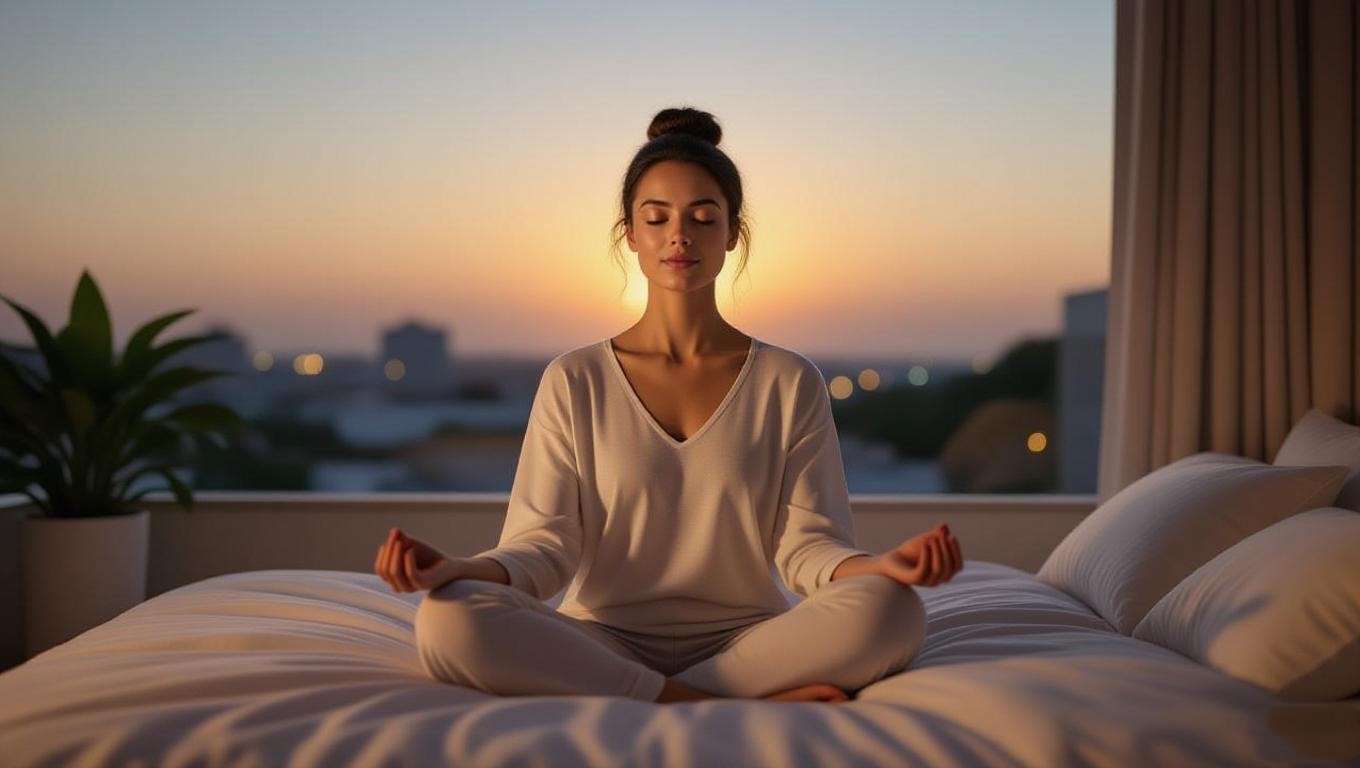
Incorporate these mindfulness techniques into your nightly routine to promote better sleep and skin health:
- Guided Meditation: Spend 10 minutes before bed following a guided meditation focused on relaxation. Apps like Calm offer sleep-specific meditations that ease tension in the face and body, reducing the likelihood of sleep scars. Try visualizing a peaceful scene to calm your mind.
- 4-7-8 Breathing: Inhale for 4 seconds, hold for 7, and exhale for 8. This technique, developed by Dr. Andrew Weil, slows the heart rate and promotes relaxation, helping you sleep more soundly and avoid tossing and turning that worsens sleep scars.
- Body Scan Technique: Lie down and mentally scan your body from head to toe, releasing tension in each area. This practice, rooted in mindfulness-based stress reduction, helps you maintain a neutral sleep posture, minimizing pressure on the face.
For added accessibility, consider downloading a free mindfulness script from a reputable source like Mindful.org to guide your practice.
The Science Behind Mindfulness and Skin Health
Mindfulness reduces cortisol, the stress hormone that exacerbates skin inflammation and delays healing. A 2019 study in Psychoneuroendocrinology found that mindfulness practices lower cortisol levels, improving skin conditions like redness and irritation. By calming the nervous system, mindfulness enhances blood flow to the skin, supporting repair and reducing sleep scars. Dr. Amy Wechsler, a dermatologist and psychiatrist, notes, “Stress reduction through mindfulness can visibly improve skin clarity and resilience.” This scientific backing underscores mindfulness as a powerful tool for holistic skin care.
Holistic Sleep Practices to Prevent and Heal Sleep Scars
Optimizing Your Sleep Environment
Your sleep environment plays a critical role in skin health. To inspire sleep scars healing, make these adjustments:
- Bedding Choices: Switch to silk or satin pillowcases, which reduce friction and pressure on the skin. A 2020 study in Dermatologic Therapy confirmed that silk bedding minimizes skin irritation compared to cotton. Look for hypoallergenic, high-thread-count options for best results.
- Room Setup: Maintain a bedroom temperature of 60-67°F and use blackout curtains to promote deep sleep. Darkness signals melatonin production, aiding skin repair.
- Humidifiers: Use a cool-mist humidifier to maintain 40-60% humidity, preventing skin dryness that worsens sleep scars. Models like the Honeywell HCM-350 are dermatologist-recommended.
Sleep Posture and Its Impact
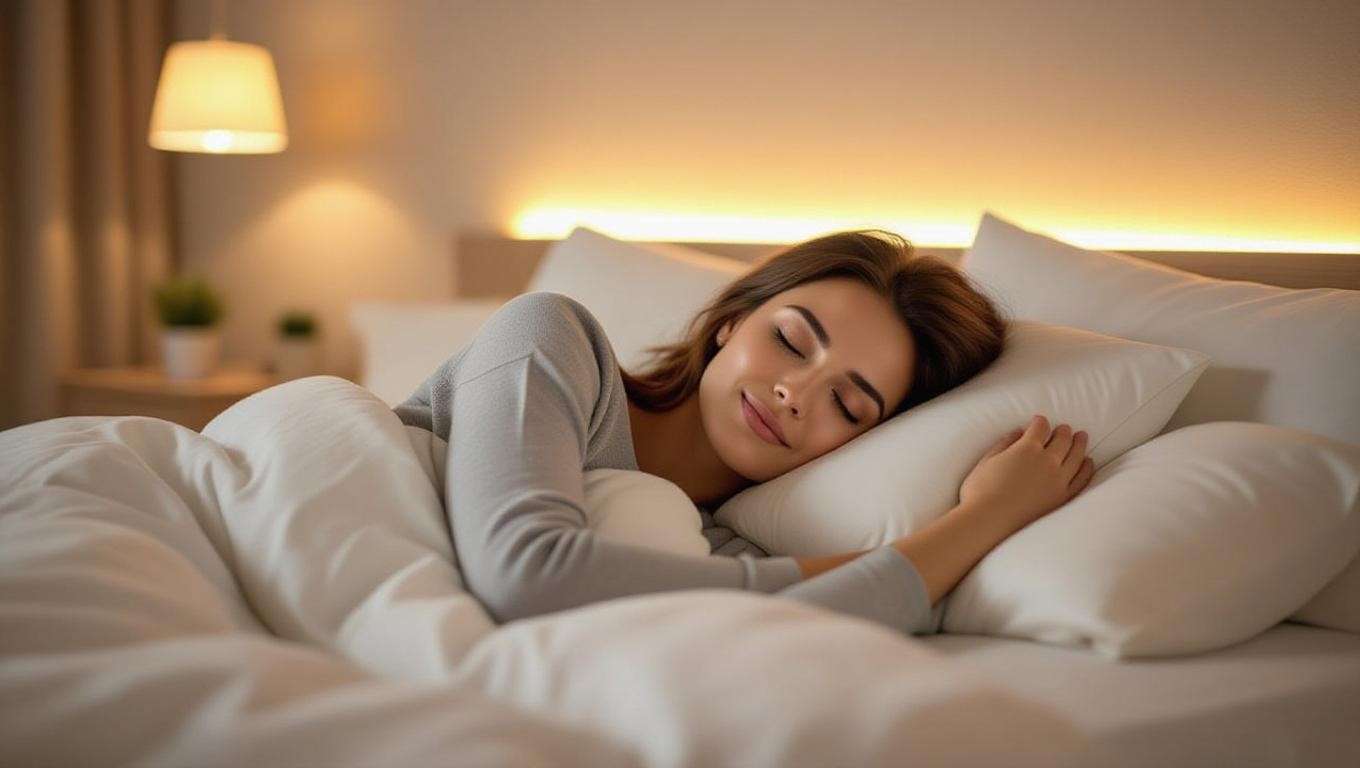
Sleeping on your back is the most effective way to minimize facial pressure and prevent sleep scars. Training yourself to adopt this posture takes time but yields results. Try these tips:
- Use a contoured pillow to support your neck and discourage rolling onto your side.
- Place a small pillow under your knees to maintain spinal alignment.
- Practice back-sleeping for short periods during the day to build the habit.
A visual guide, such as an infographic illustrating proper back-sleeping alignment, can help readers implement this change effectively.
Pre-Sleep Skincare Rituals
A gentle, holistic skincare routine before bed can prevent sleep scars and enhance skin resilience. Follow these steps:
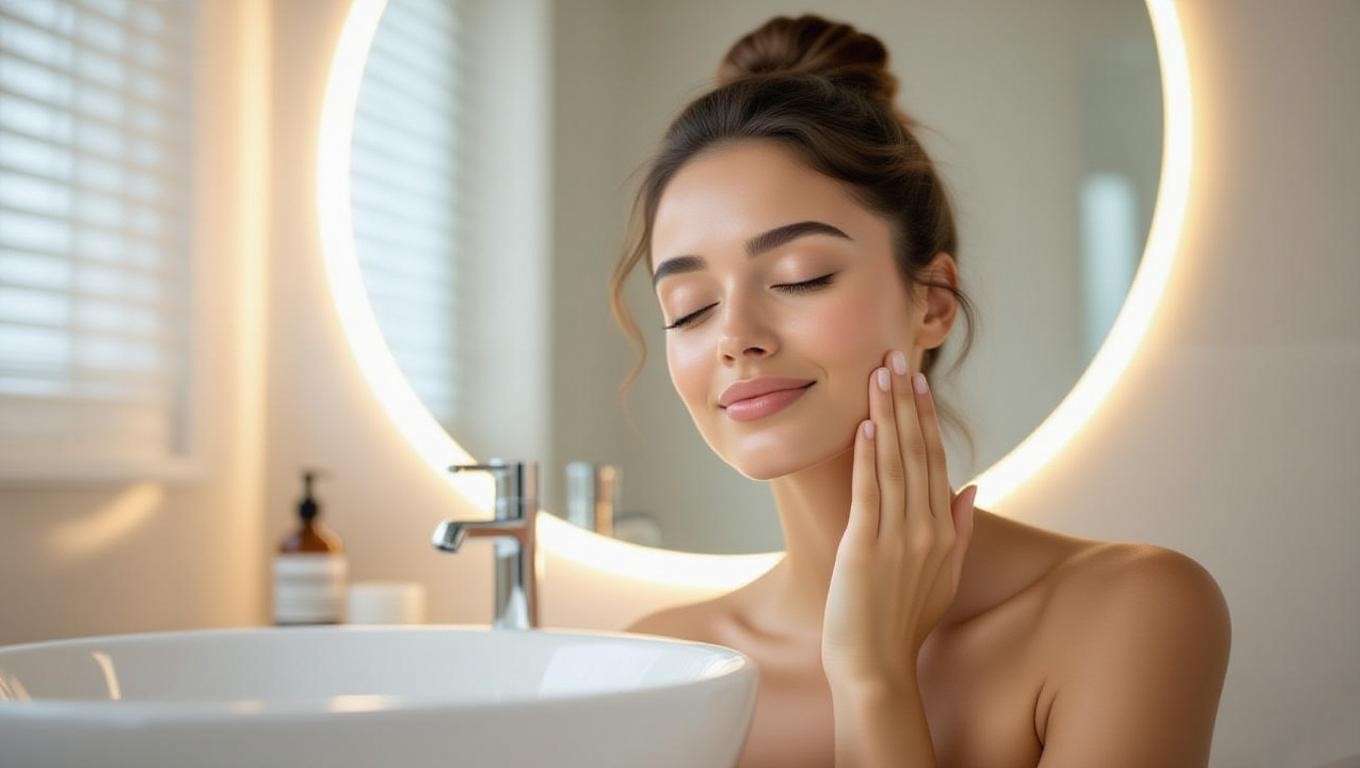
- Cleanse: Use a mild, non-foaming cleanser to remove dirt and oil without stripping the skin.
- Hydrate: Apply a lightweight, non-comedogenic moisturizer with ingredients like hyaluronic acid or aloe vera to lock in moisture.
- Nourish: Use a natural oil, such as rosehip or jojoba, to reduce friction and support skin repair. Massage gently to relax facial muscles.
Avoid heavy creams that clog pores or synthetic fragrances that irritate sensitive skin. Consistency in this routine is key to long-term results.
Nutrition and Hydration for Skin and Sleep
Foods That Support Skin Repair
Nutrition plays a vital role in inspiring sleep scars healing by supporting skin repair and reducing inflammation. Incorporate these skin-friendly foods into your diet:
- Omega-3 Fatty Acids: Found in salmon, chia seeds, and walnuts, omega-3s reduce inflammation and promote skin elasticity. A 2021 study in Marine Drugs highlighted omega-3s’ role in enhancing skin barrier function.
- Berries: Blueberries, strawberries, and raspberries are rich in antioxidants, which combat oxidative stress that worsens skin marks.
- Leafy Greens: Spinach and kale provide vitamin A and C, essential for collagen production and skin repair.
- Nuts and Seeds: Almonds and sunflower seeds offer vitamin E, protecting skin from damage.
Sample Meal Plan for a Day:
- Breakfast: Greek yogurt with mixed berries and chia seeds.
- Lunch: Grilled salmon salad with spinach, avocado, and olive oil dressing.
- Snack: Handful of almonds and a green smoothie.
- Dinner: Quinoa bowl with roasted vegetables and a side of steamed kale.
By prioritizing these foods, you nourish your skin from within, reducing the severity of sleep scars.
Hydration for Skin Elasticity
Proper hydration is crucial for maintaining skin elasticity and preventing sleep scars. Aim for 8-10 glasses of water daily to keep skin plump and resilient. Herbal teas, such as chamomile or peppermint, double as hydrating and calming beverages that promote relaxation before bed. A 2017 study in Nutrients found that adequate hydration improves skin barrier function, reducing the likelihood of creases and redness. Avoid common myths, like the idea that drinking excessive water alone will “cure” skin issues—balance is key, paired with a nutrient-rich diet.
Building a Nightly Routine for Holistic Well-Being
Crafting a Mindful Bedtime Routine
A consistent, mindful bedtime routine combines mindfulness, skincare, and sleep hygiene to inspire sleep scars healing and enhance overall well-being. Here’s a step-by-step routine to try:
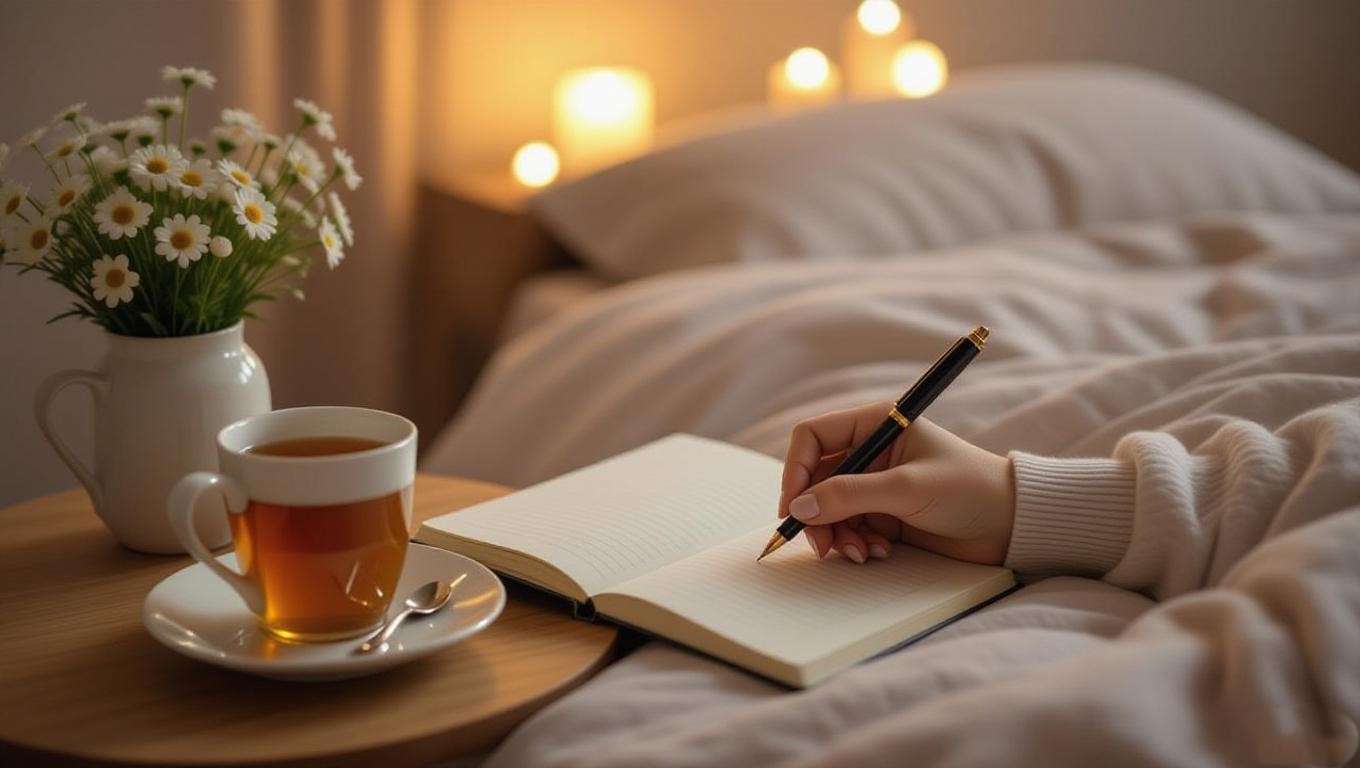
- 7:00 PM – Wind Down: Turn off screens and engage in a calming activity, like reading or journaling, to signal the body it’s time to relax.
- 7:30 PM – Skincare: Follow the pre-sleep skincare ritual (cleanse, hydrate, nourish) to prepare your skin for repair.
- 7:45 PM – Mindfulness Practice: Perform a 10-minute guided meditation or 4-7-8 breathing exercise to release tension.
- 8:00 PM – Prepare Sleep Environment: Adjust room temperature, dim lights, and switch to silk bedding.
- 8:15 PM – Body Scan: Lie in bed and practice a body scan to relax muscles and encourage back-sleeping.
For convenience, use apps like Insight Timer for guided meditations or create a printable checklist to track your routine. Consistency in this routine fosters deeper sleep and healthier skin.
Consistency and Long-Term Benefits
Committing to a nightly routine yields cumulative benefits. Over weeks, improved sleep quality enhances skin repair, reducing the frequency and intensity of sleep scars. A hypothetical case study: Sarah, a 34-year-old professional, struggled with persistent sleep scars. By adopting a mindful bedtime routine and switching to silk pillowcases, she noticed a 50% reduction in morning creases within a month. Her stress levels also dropped, improving her overall well-being. Patience is key—results may take 4-8 weeks but are transformative for skin and mental health.
Expert Tips and Tools to Enhance Results
Dermatologist-Recommended Practices
Dermatologists emphasize simple, evidence-based strategies to prevent sleep scars. Dr. Shereene Idriss, a board-certified dermatologist, advises, “Avoid heavy creams before bed, as they can trap heat and worsen creases.” Other expert tips include:
- Morning SPF: Apply a broad-spectrum SPF 30+ sunscreen to protect skin from UV damage, which can exacerbate sleep scar visibility.
- Gentle Exfoliation: Use a mild exfoliant (e.g., lactic acid) once a week to promote cell turnover without irritating skin.
- Face Massage: Incorporate a 2-minute facial massage with a natural oil to improve circulation and relax muscles.
These practices, rooted in dermatological expertise, enhance holistic sleep scar prevention.
Technology and Apps for Mindfulness and Sleep
Leverage technology to support your journey. Recommended tools include:
- Calm: Offers sleep stories and meditations tailored for relaxation and better sleep.
- Headspace: Features guided body scans and breathing exercises to reduce stress.
- Sleep Cycle: Tracks sleep patterns and posture, helping you identify habits that contribute to sleep scars.
Comparison Table:
| App | Key Features | Best For |
|---|---|---|
| Calm | Sleep stories, meditations | Beginners seeking relaxation |
| Headspace | Guided mindfulness, body scans | Stress reduction |
| Sleep Cycle | Sleep tracking, posture analysis | Data-driven sleep improvement |
These tools make mindfulness and sleep tracking accessible, boosting your ability to inspire sleep scars healing.
Common Myths About Sleep Scars and the Truth
Dispelling myths ensures readers make informed choices. Here are common misconceptions:
- Myth: Sleep scars are permanent.
Truth: Sleep scars are temporary and fade within hours with proper care. Consistent holistic practices prevent recurrence. - Myth: Only expensive products help sleep scars.
Truth: Affordable changes, like silk pillowcases or hydration, are highly effective, as supported by dermatological research. - Myth: Sleep position doesn’t matter.
Truth: Back-sleeping significantly reduces facial pressure, minimizing sleep scars, per a 2020 study in Aesthetic Surgery Journal.
Clear, evidence-based explanations build trust and empower readers.
FAQs About Sleep Scars and Holistic Healing
- How long does it take for sleep scars to fade with mindfulness and holistic practices?
Most sleep scars fade within hours, but consistent mindfulness and sleep hygiene can reduce their frequency and severity within 2-4 weeks. Results vary based on skin type and adherence. - Can changing my pillowcase really prevent sleep scars?
Yes, silk or satin pillowcases reduce friction and pressure, minimizing creases. Studies in Dermatologic Therapy confirm their efficacy. - Are there specific meditations for better sleep and skin health?
Guided meditations focusing on relaxation, like those on Calm or Headspace, reduce stress and improve sleep quality, indirectly supporting skin repair. - What if I can’t sleep on my back—how else can I reduce sleep scars?
Use silk bedding, stay hydrated, and practice mindfulness to relax facial muscles. Side-sleepers can use a contoured pillow to minimize pressure. - Do sleep scars indicate other health issues?
Rarely, but persistent redness or marks may signal dehydration, allergies, or poor sleep quality. Consult a dermatologist if marks last beyond a day.
Conclusion
Inspiring sleep scars healing is about more than just fading morning creases—it’s about embracing mindfulness and holistic sleep practices to transform your skin and well-being. By optimizing your sleep environment, adopting mindful routines, and nourishing your body, you can wake up with radiant, scar-free skin and a refreshed mind. Start tonight with one small change, like a 5-minute meditation or switching to a silk pillowcase, and watch the benefits unfold. Share your journey in the comments or on social media with #InspireSleepScars. As Thich Nhat Hanh said, “The present moment is filled with joy and happiness. If you are attentive, you will see it.” Let’s make every morning a fresh start.

